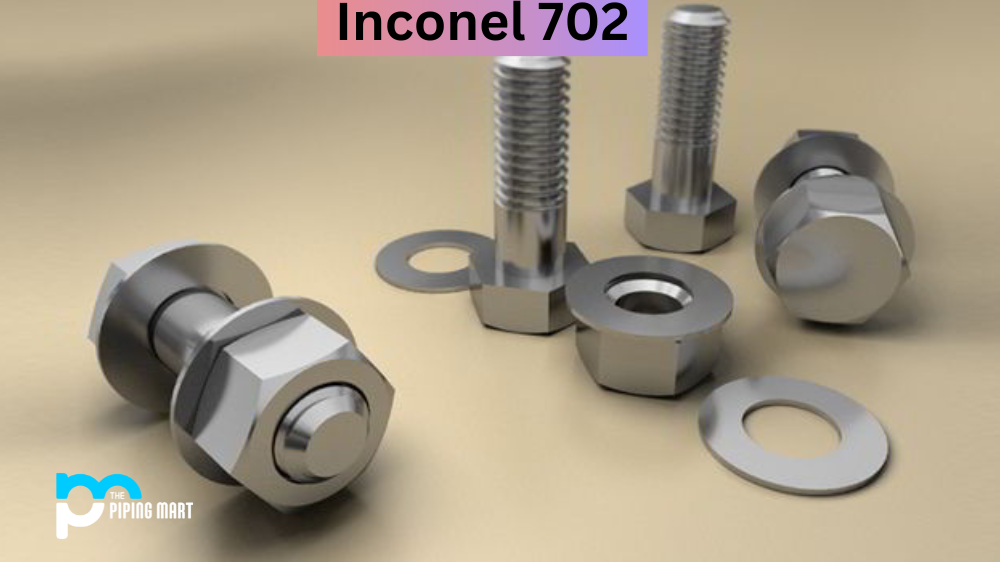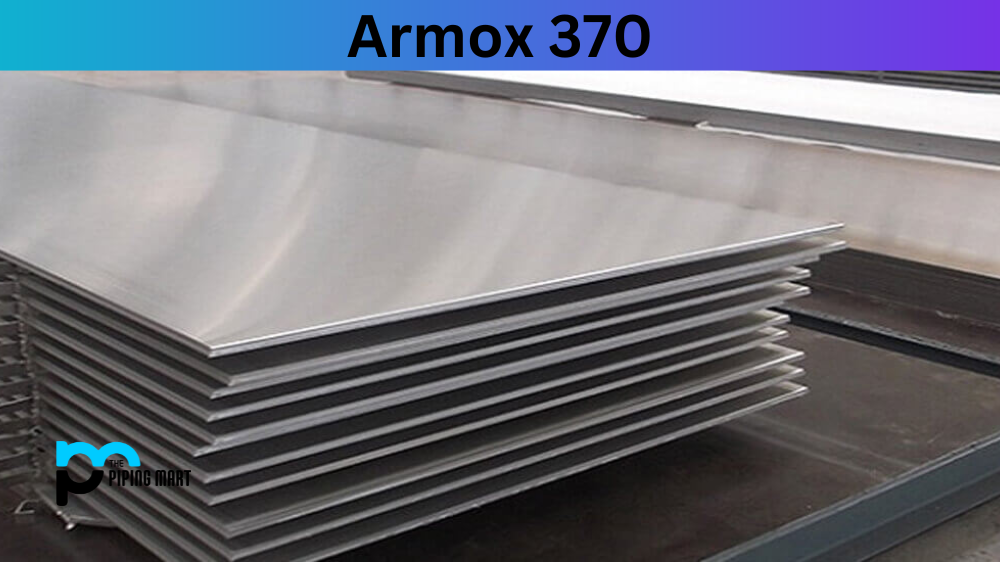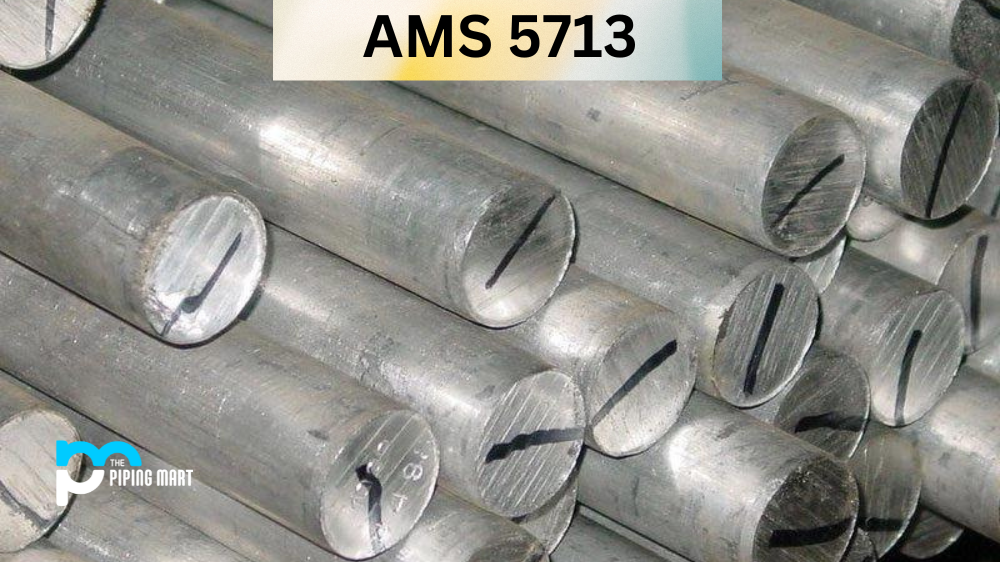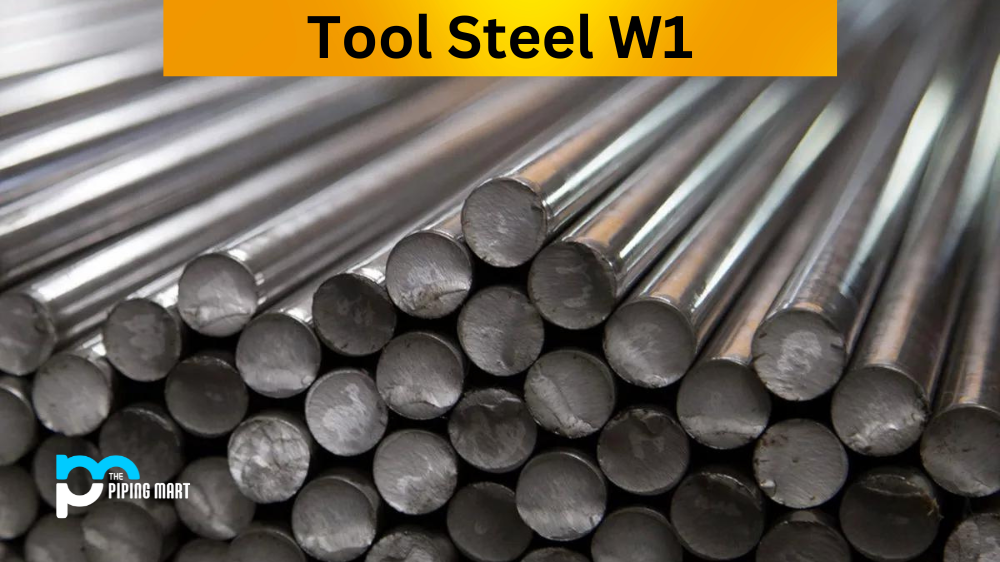UNS N07702 is an alloy made of nickel, chromium, and iron. It has a high strength-to-weight ratio, excellent corrosion resistance, and good heat resistance. It is one of the most popular alloys used in various industries, such as aerospace, power generation, and chemical processing. This article will discuss the composition, properties, uses, and welding of Inconel 702.
702 Inconel Composition
UNS N07702 is composed primarily of nickel (66%), chromium (19%) and iron (15%). It also contains trace amounts of molybdenum and copper for added strength. The alloy is characterized by its high strength-to-weight ratio and good corrosion resistance at elevated temperatures.
| Element | Content (%) |
|---|---|
| Chromium, Cr | 14-17 |
| Aluminum, Al | 2.75- .75 |
| Iron, Fe | 2 max |
| Manganese, Mn | 0.7 max |
| Copper, Cu | 0.5 max |
| Titanium | 0.25 – 1 |
| Carbon, C | 0.1 max |
| Sulfur | 0.01 max |
702 Inconel Chemical Properties
UNS N07702 is one of the most versatile and resilient metallic alloys used in a variety of applications across many industries. It exhibits remarkable chemical properties that make it an ideal material for those seeking a durable, erosion-resistant solution. It boasts broad temperature range capabilities with superior mechanical strength and stress corrosion resistance – something almost impossible to achieve with other materials. Inconel 702 allows for faster construction, and increased safety, and is easy to form. Its incredible combination of chemical properties guarantees total protection against corrosion and remains unaffected by extreme temperatures.
702 Inconel Mechanical Properties
The mechanical properties of Inconel 702 are excellent. It has a high tensile strength that can reach up to 810 MPa at room temperature. The yield strength is also impressive at 690 MPa, while its elongation rate stands at 35%. Additionally, it has good fatigue strength, which makes it ideal for applications that require frequent loading cycles, such as aircraft components or heavy machinery parts.
| Inconel 702 Mechanical Properties | ||
|---|---|---|
| Material Group | S – Superalloys (Heat resistant and Titanium) | |
| Sub-Group | Superalloy | |
| Hardness | 26.0 HRC | |
| Tensile Strength | [N/mm^2] | |
| Machinability | 19% | |
702 Inconel Physical Properties
In terms of physical properties, Inconel 702 offers superior thermal stability with a melting point range between 1320°C – 1350°C. Its density is 8 g/cm3, which makes it relatively light when compared to other metals with similar characteristics, such as titanium or stainless steel alloys. The modulus of elasticity for this alloy is 200 GPa which provides it with good formability in extreme temperatures and environments.
| Properties | Metric | Imperial |
|---|---|---|
| Density | 7.8 g/cm³ | 0.283lb/in³ |
| Melting point | 1394°C | 2540°F |
702 Inconel Equivalent
| Standard | Name |
|---|---|
| SAE | 5550 |
| ANFOR | NC15A |
702 Inconel Uses
UNS N07702 can be found in various industries due to its superior properties, such as aerospace engineering, power generation plants, chemical processing facilities, oil refineries and nuclear reactors. Its ability to withstand extreme temperatures without losing its structural integrity makes it ideal for use in these fields where temperature fluctuations are common occurrences on a regular basis. Additionally, due to its corrosion resistance capabilities, it can be used in marine applications where salt water or other corrosive elements are present without fear of damage or deterioration over time.
Corrosion Resistance
In addition to its heat resistance capabilities, Inconel 702 also has great corrosion resistance, which allows it to stand up against harsh environments without fear of damage from oxidation or rust over time. This makes it ideal for use in applications such as marine engines and oil refineries where exposure to corrosive elements is inevitable on a daily basis without risk of failure due to material degradation over time.
Heat Treatment
In order to achieve optimal performance from this alloy, it must be treated using specific heat treatments depending on the application that they will be used in afterwards; however, this treatment should only be done by experienced professionals who have the necessary knowledge and equipment available in order to do so safely and correctly without damaging the material itself during the process.
Machining
Additionally, machining this material requires special tools due to its hardness, so again only experienced personnel should attempt machining operations involving this metal alloy if possible.
Welding
When welding with this particular alloy, special care must be taken into consideration prior to doing so since welding parameters vary depending on the filler material being used; however, some general considerations need to be taken into account no matter what type of filler materials being used such as preheating before welding if possible so that any residual stresses created during fabrication can relieved before welding begins as well as taking extra care when removing slag from welds since excessive heat input could cause damage.
Conclusion
In conclusion,inconel702is an incredibly versatile metal alloy thanks to its excellent mechanical, physical, and chemical properties, making it suitable for use in many different industries ranging from aerospace engineering to power generation plants and chemical processing facilities. Its high strength-to-weight ratio allows It to stand extreme temperatures without losing its structural integrity, while its corrosion resistance properties allow it to be used in marine applications without fear of rust formation over time. Finally, the ability to machine and weld with this alloy makes the site even more attractive for industrial-scale use as long as the proper protocol is followed during these operations by experienced professionals to prevent damage or thermal distortion of the material itself.

Abhishek is a seasoned blogger and industry expert, sharing his insights and knowledge on various topics. With his research, Abhishek offers valuable insights and tips for professionals and enthusiasts. Follow him for expert advice on the latest trends and developments in the metal industry.




